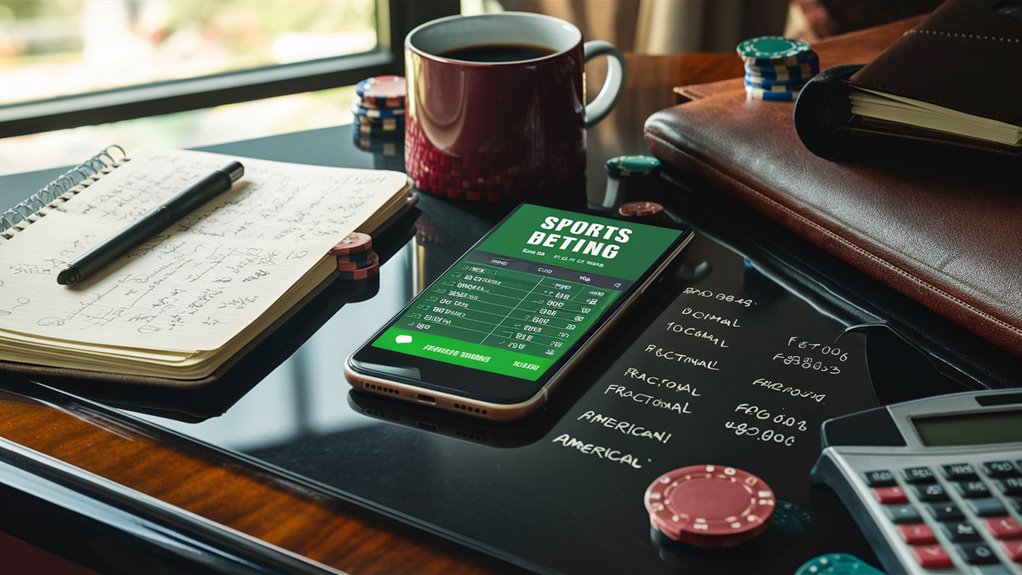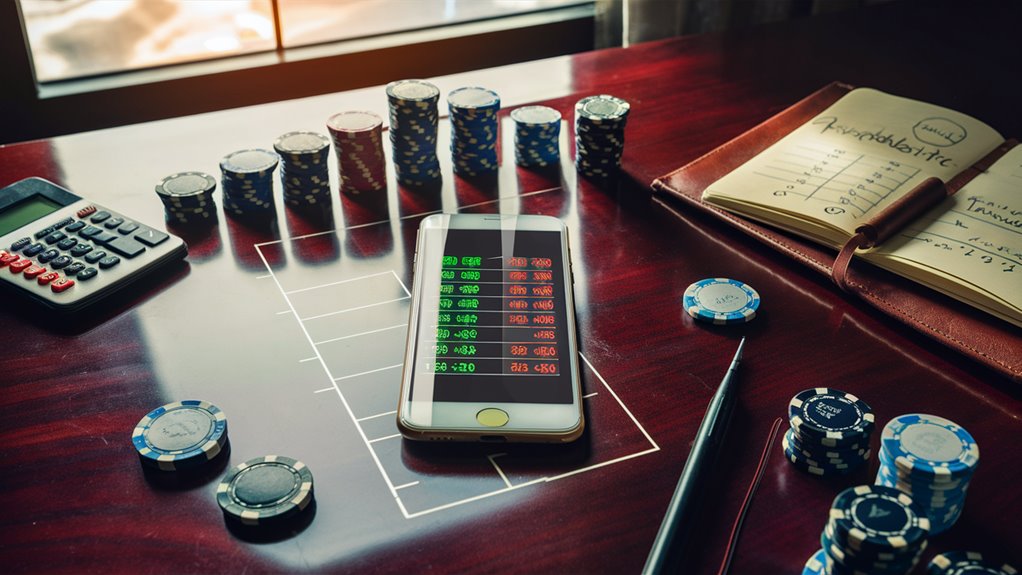
How to Win at Online Gambling

Key Types of Betting Odds
Decimal odds, fractional odds, and moneyline odds are essential for online betting. For instance, decimal odds of 2.50 means a $250 win on a $100 bet. Fractional odds of 3/1 result in a $300 win on a $100 bet. American moneyline odds of +300 also yield a $300 win on the same wager. https://maxpixels.net/
How to Work Out Expected Value (EV)
Knowing expected value is crucial for effective betting strategies. The formula to calculate EV is:
- (Chance to Win x Win Total) – (Chance to Lose x Money at Risk)
This calculation identifies +EV situations where the potential profit outweighs the risk. Successful bettors consistently apply EV calculations across betting markets to ensure profitability.
How to Manage Your Money
Smart money management is crucial for sustainable success in betting. Adhere to the 2% rule — never wager more than 2% of your total bankroll on a single bet. This conservative approach safeguards your finances while allowing you to capitalize on favorable betting opportunities.
Deep Market Checks
Utilize the triad of betting fundamentals — understanding odds, applying EV calculations, and managing bankroll — to exploit market inefficiencies. Monitor line movements, analyze betting trends, and review historical data to uncover lucrative betting opportunities across online platforms.
Know Different Betting Odds
Decimal Odds (European Form)
Decimal odds provide a straightforward betting format online. For a $100 bet at decimal odds of 2.50, the potential payout is $250.
Fractional Odds (British/Irish Form)
Fractional odds are represented as ratios like 3/1 or 5/2, indicating the potential profit relative to the stake. For example, 3/1 odds result in a $300 win on a $100 bet.
Moneyline Odds (American Form)
Moneyline odds utilize positive and negative signs to indicate potential payouts. A +300 moneyline means a $300 win on a $100 bet, while -300 requires a $300 bet to win $100.
Changing Odds Forms
Converting between odds formats is vital for discerning bettors seeking optimal value. Savvy bettors frequently use odds converters to compare offers across global sportsbooks, ensuring value regardless of format.
Guide on Changing Betting Odds Forms
Simple Odds Changes
Converting between odds forms involves mathematical conversions that all bettors should understand.
Decimal to Fractional Odds Change
- Subtract 1 from the decimal
- Simplify the result to its lowest terms
- Example: 2.50 converts to 3/2 (2.50 – 1 = 1.50 = 3/2)
Fractional to Decimal Odds Change
- Divide the first number by the second
- Add 1 to the result
- Example: 3/2 becomes 2.50 (3 ÷ 2 + 1 = 2.50)
Changing to American Odds
- For decimal odds >2.00: Multiply (decimal – 1) x 100
- For decimal odds <2.00: Divide -100 by (decimal – 1)
- Example: 2.50 becomes +150
- Example: 1.50 changes to -200
How to Work Out Expected Value
Work Out Expected Value (EV) in Sports Betting

Know Expected Value
Expected value (EV) calculations are integral for betting success. This analytical approach estimates the average amount you can expect to win or lose on a bet over time.
The EV Rule
The primary EV calculation formula is:
- EV = (Chance to Win x Money Won) – (Chance to Lose x Money at Risk)
Example EV Calculation
- Money at risk: $100
- Possible win: $150
- Win chance: 45%
- Lose chance: 55%
Step-by-step calculation:
- EV = (0.45 x $150) – (0.55 x $100)
- EV = $67.50 – $55.00
- EV = +$12.50
Understanding EV
A positive EV indicates a favorable betting opportunity. With an EV of +$12.50, this suggests an average gain of $12.50 per $100 bet in the long run.
Full Guide on Casino House Edge
The Math of House Edge
The house edge represents the built-in advantage casinos have over players, ensuring their profitability over time. For instance, a $100 bet on red in roulette has a 47.37% chance to win $100 and a 52.63% chance to lose, resulting in a 5.26% house edge.
House Edge in Different Games
- Blackjack with optimal strategy: 0.5% edge
- Baccarat banker bets: 1.06% edge
- Slot machines: 2-15% edge range
- Video poker: 0.5-5% edge range
Calculating Expected Losses
The formula for estimating expected gambling losses is:
- Total money wagered x House edge = Expected loss
For example, gambling $1,000 on roulette with a 5.26% edge results in an expected loss of $52.60 over time. Understanding these statistical probabilities assists players in selecting games that best preserve their bankroll.
Finding Top Sports Betting Opportunities
Understanding Value Bets
A value bet occurs when the true probability of an outcome surpasses the implied probability reflected in the bookmaker’s odds. The core calculation involves multiplying your estimated probability by the decimal odds. If the result exceeds 1.0, a potential value betting opportunity exists.
Calculating Value Precisely
Consider this value assessment in tennis betting: Player A has a 60% win probability, yet bookmaker odds of 2.0 suggest a 50% chance. Calculating (0.60 x 2.0 = 1.2) illustrates favorable value, due to the result exceeding 1.0.
Identifying Value Opportunities
Market Awareness
Monitor odds fluctuations and price discrepancies across various betting platforms. Significant differences between bookmakers for the same event often signify value betting opportunities, particularly in smaller markets.
Data-Driven Analysis
Utilize data analysis through:
- Historical game statistics
- Advanced statistical models
- Probability calculations
- Identifying market inefficiencies
Specialized Market Focus
Target niche betting markets where bookmakers may possess less expertise:
- Lesser-known sports
- Local events
- Emerging sports categories
- Minor bet types within major events
Top Money Management Strategies for Sports Betting
Understanding Financial Management
Prudent financial management is the cornerstone of successful sports betting, protecting your funds while enhancing your chances of winning. The Kelly Criterion offers a mathematical framework, suggesting wagers between 1-5% of your total bankroll per bet based on your calculated edge.
Unit-Based Betting Structure
Dividing your bankroll into betting units establishes a structured betting framework. An optimal setup consists of 50-100 total units, allowing ample flexibility for various betting opportunities. For a $1,000 bankroll, each unit represents $10-$20.
Conserving Losses and Managing Risk
Establishing Stop-Loss Limits
- Daily limit: Maximum of 5 units How to Make Your First Deposit at an Online Casino
- Weekly limit: Maximum of 15 units
- Adjust unit size: Reduce as bankroll fluctuates
Defending Against Variance
During losing streaks, adhere to stringent guidelines by modifying unit size as bankroll declines. For instance, if your bankroll decreases from $1,000 to $800, adjust unit size from $20 to $16.

